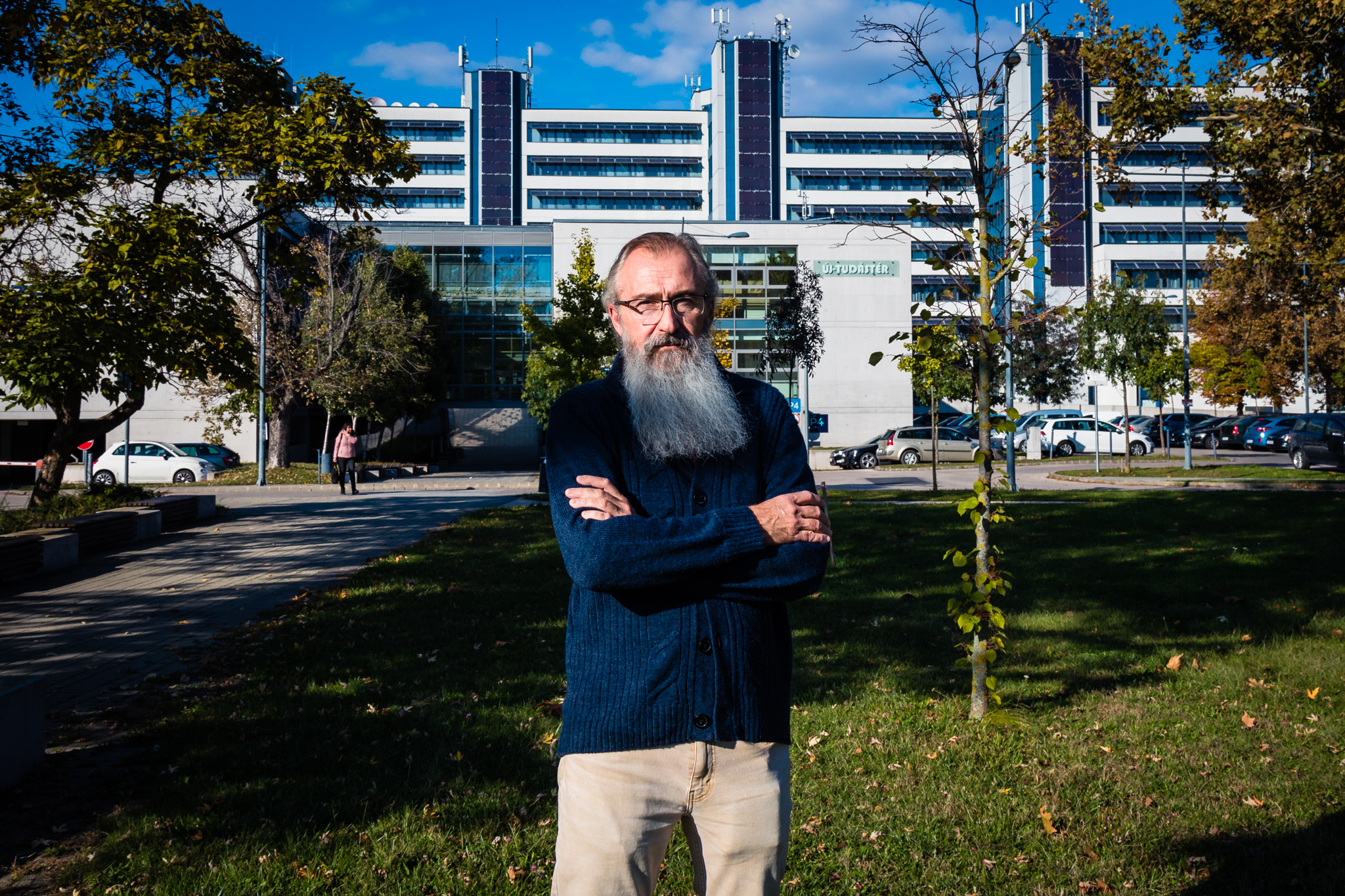American Fulbright professor teaches philosophy at Széchenyi University
Adam Kovach, a professor at Marymount University in the USA, is visiting Széchenyi István University for six months. The renowned researcher has come on a Fulbright scholarship to Győr, where he will teach philosophy to teachers and architecture students, among other things, as well as leading thought-provoking workshops. We met the researcher at a discussion on free will.
Professor Kovach has been teaching philosophy at Marymount University in the United States since 2004, where he has published widely on the nature of emotions and the relationship between ideas and ethics. This year, he successfully applied for a Fulbright scholarship to travel to Europe. His Hungarian origins and his interest in the region led him to choose Central Europe, including Győr and Széchenyi István University.

"From the United States, this is a very exciting region, which is why I chose Győr in the first place. I know Budapest well, but I didn't want to go there, as I was more interested in rural Hungary. If I can, during my stay I will visit Veszprém, Pécs and Szeged. Marymount University has a good relationship with Széchenyi István University and the two institutions are partners, so there was no question where I would spend the semester," said the professor.
This semester, students can meet him in philosophy courses, and he has been giving lectures to teachers and architects since the beginning of the academic year. His local mentor is Dr Nóra Horváth, also a philosopher and associate professor at the University's Apáczai Csere János Faculty of Humanities, Education and Social Sciences, with whom he teaches basic philosophy courses.
The professor also led an open workshop at the University on the ancient problem of free will. He posed the question "If there is no free will, are we responsible for our choices?", illustrated by the example of Phineas Gage, the 19th-century railway worker who later became famous, suffering a serious accident in which his brain was severely damaged. Gage survived, but his personality changed, and he became unreliable and impolite. Dr Kovach made his audience think by asking if we can put the blame for this on Gage.
The workshop was also attended by Dr Eszter Lukács, the University's Vice Rector for International Affairs, who said they were delighted to have a visiting professor who was a native English speaker and an outstanding academic in his field. "This will contribute to further raising the quality of education, attracting more international students to Győr and strengthening the international research network between Széchenyi István University and Marymount University," she said.











